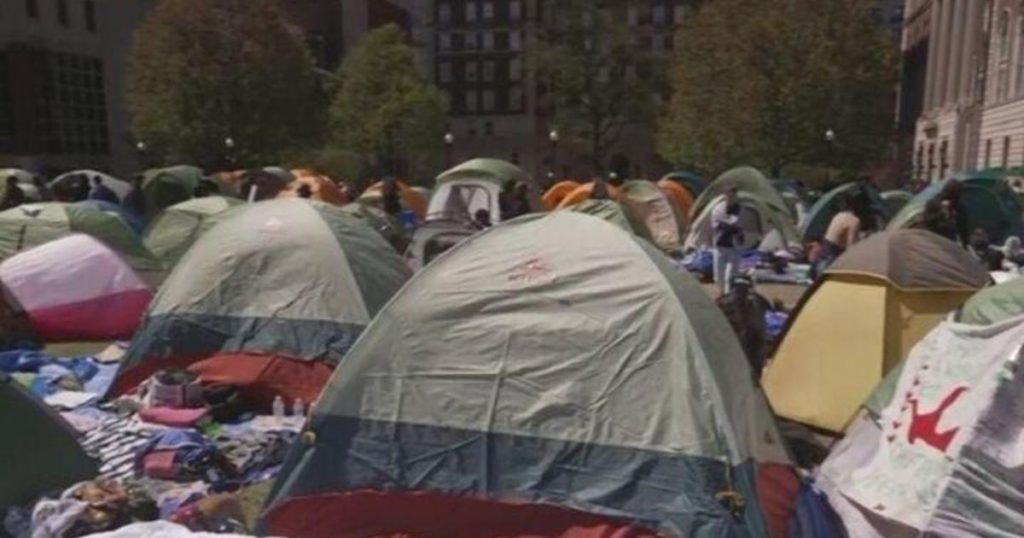Pro-Palestinian protesters at Columbia University are facing a deadline set by the school president, Minouche Shafik, to reach an agreement with school administrators regarding their encampment on the campus. Shafik stated that talks must reach an agreement before midnight on Tuesday, or alternative options, such as deploying National Guard troops and NYPD officers, will be considered to clear the area and restore calm to the campus. The school cited safety concerns, disruptions to campus life, and a hostile environment as reasons for the deadline.
The group representing the protesters, Columbia Students for Justice in Palestine, claimed that talks were broken off with school officials because the university was not bargaining in good faith and had threatened to call for National Guard troops and NYPD officers. Despite the threats, protesters continued to peacefully demonstrate, taking down some tents but not completely clearing out of the area. Reports indicated that negotiations were extended until 8 a.m. the next day, and the university spokesperson mentioned that progress was being made, with the protesters committing to removing tents and ensuring only Columbia students participate.
Pro-Palestinian demonstrators outside Columbia University have called for the school to sever financial ties with Israel, holding a news conference at the home of President Shafik to emphasize their demands. Students, some of whom were Jewish, expressed pride in their protest actions and solidarity with Palestinians in Gaza. The encampment at Columbia continued to engage in talks with the university, with protesters stating that they would not back down until their demands were met. The demonstrations on campus had sparked tensions, with Jewish students feeling unsafe, leading to the switch to remote learning to deescalate the situation.
Amid ongoing protests at Columbia, Chopper 2 flew over the South Lawn where pro-Palestinian demonstrators had set up camp. The situation had impacted campus operations, with classes offering hybrid options and access restricted for safety. Students expressed feelings of dismay at the disruptions to their academic focus, with some finding it disheartening and disconcerting to witness the protests escalating. The university’s response included a commitment to supporting learning operations while addressing safety concerns and ensuring a conducive environment for students to complete their semester.
As demonstrations continued, tensions rose on the Columbia University campus, with concerns about safety and academic disruptions at the forefront. Some protesters called for President Shafik’s resignation, while others expressed worry about potential aggressive action by a replacement. The ongoing discourse emphasized the importance of respectful communication and finding compromises to resolve the situation. Government officials and community leaders weighed in on the protests, with calls for peaceful demonstrations and respectful dialogue in addressing the issues at hand.
The semester at Columbia University had been marked by protests and tensions surrounding the pro-Palestinian demonstrations, with students expressing a range of emotions and concerns about the impact on campus life. As the situation evolved, students, journalists, and community members reflected on the complexities and challenges posed by the ongoing protests. Some expressed regret over the disruptions during religious holidays, while others highlighted the need for dialogue and understanding amidst differing perspectives. Efforts to navigate the protests and find solutions were ongoing, with plans for upcoming activities and events, including commencement, still in progress.


